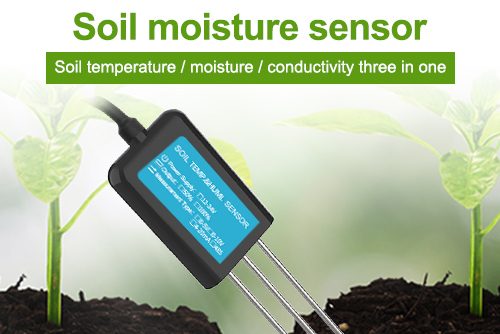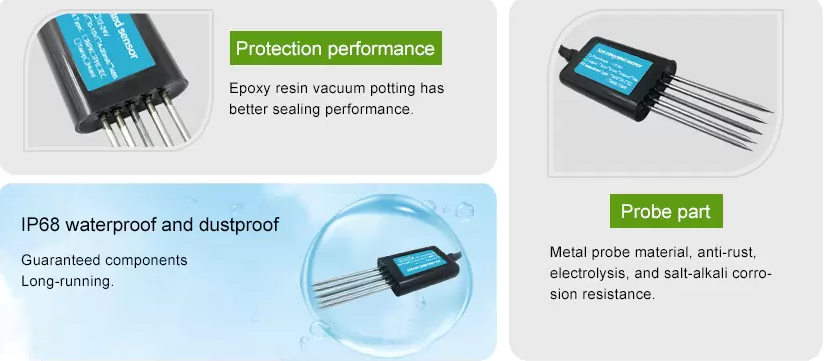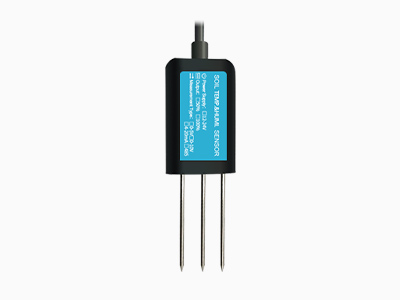Moisture probe are invaluable tools for monitoring soil moisture levels, supporting sustainable agriculture, efficient water management, and environmental conservation. This article delves into the significance of moisture probes, their applications in agricultural settings, technological advancements, and their impact on enhancing water use efficiency and crop productivity.
Importance of Moisture Probes

Moisture probe play a crucial role in assessing soil moisture content, providing essential data for informed irrigation decisions, crop management, and conservation of water resources. By accurately measuring soil moisture levels, these probes enable farmers and growers to optimize water use, reduce water waste, and enhance the overall sustainability of agricultural practices.
Applications of Moisture Probes
Irrigation Management: Moisture probe are widely monitor soil moisture levels and guide irrigation scheduling, ensuring that crops receive the appropriate amount of water at the right time, thus avoiding overwatering or underwatering.
Crop Health Monitoring: These probes support the assessment of soil moisture conditions, helping to prevent water stress in plants and optimize growing conditions for improved crop health and yield.

Environmental Conservation: By promoting efficient water use and reducing the risk of waterlogging or runoff, moisture probes contribute to the conservation of water resources and the protection of natural ecosystems.
Research and Data Analysis: Moisture probes provide valuable data for research purposes, facilitating the analysis of soil moisture trends, water dynamics, and the development of sustainable agricultural practices.
Technological Advancements in Moisture Probes
The evolution of moisture probe technology has led to the development of advanced, accurate, and user-friendly solutions for soil moisture monitoring.

Sensor Technology: Modern moisture probes utilize advanced sensor technologies, including capacitance and time-domain reflectometry (TDR), to measure soil moisture content with high precision and reliability.
Wireless Connectivity: Many moisture probes are equipped with wireless connectivity, enabling real-time data transmission and remote monitoring of soil moisture levels across different fields and agricultural sites.
Integration with Precision Agriculture: Moisture probes can be integrated into precision agriculture systems, allowing for the collection of spatially distributed soil moisture data and the implementation of site-specific irrigation strategies.
Impact on Sustainable Agriculture and Water Management
The widespread adoption of moisture probes has had a significant impact on promoting sustainable agriculture and efficient water management practices.

Water Use Efficiency: By providing real-time soil moisture data, these probes support the optimization of irrigation practices, leading to improved water use efficiency and reduced water consumption in agricultural operations.
Crop Productivity: Maintaining optimal soil moisture levels through the use of moisture probes has been linked to enhanced crop productivity, yield quality, and overall farm profitability.
Environmental Stewardship: Moisture probes contribute to environmental stewardship by minimizing water waste, preventing soil erosion, and reducing the environmental impact of agricultural water usage.
Economic Benefits: Efficient water management facilitated by moisture probes can result in cost savings for farmers and growers, reducing operational expenses related to water supply and irrigation.
Future Developments and Challenges
Looking ahead, the continued advancement of moisture probe technology presents opportunities and challenges for sustainable agriculture and water management.
Data Analytics and Decision Support: Integration of moisture probe data with advanced analytics and decision support systems will enable farmers to make data-driven decisions for irrigation management and crop production.
Sensor Calibration and Maintenance: Addressing the challenges associated with sensor calibration, maintenance, and long-term reliability will be essential for ensuring the accuracy and effectiveness of moisture probe data.
Climate Resilience: Moisture probes will play a vital role in building climate-resilient agricultural systems, supporting adaptive strategies for water management in response to changing environmental conditions.
Conclusion
In conclusion, moisture probes are indispensable tools for monitoring soil moisture, supporting sustainable agriculture, efficient water use, and environmental conservation. As technology continues to advance, the integration of innovative sensor technologies and data analytics will further enhance the capabilities of moisture probes, contributing to the sustainable management of water resources and the resilience of agricultural systems.
